ASTANA – An international seminar on the oral history of the Nunn-Lugar weapons of mass destruction decommissioning programme launched in Astana on June 1 with statements from Russian, American and Kazakh diplomats and participants in Nunn-Lugar supported operations. The conference will continue in a closed format over the next three days.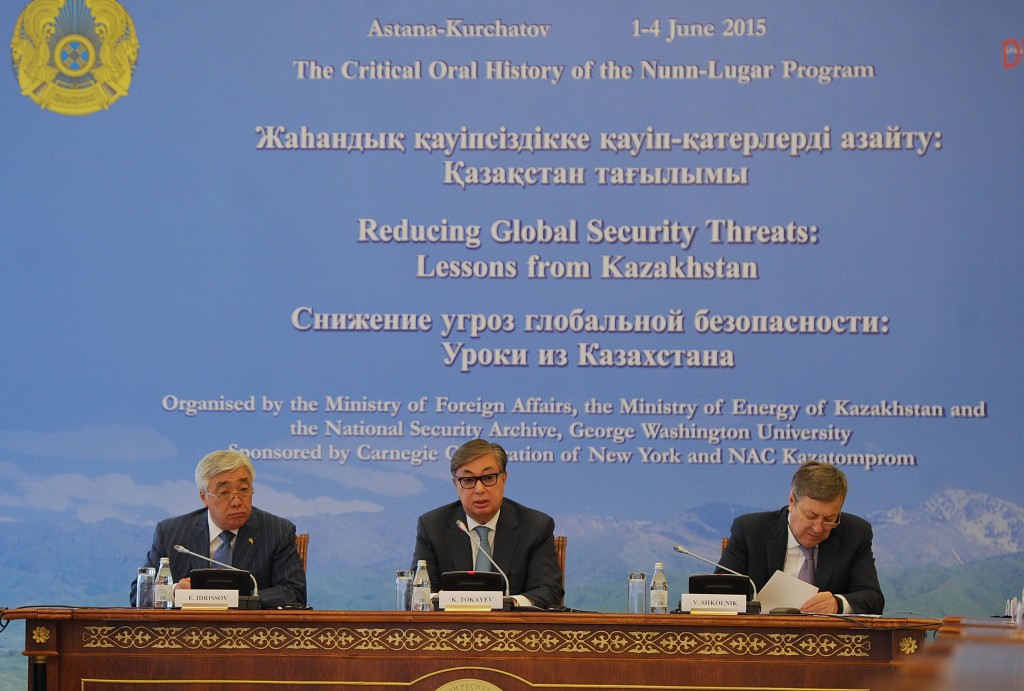
“We are here because Kazakhstan’s decisions and the vision of President [Nursultan] Nazarbayev truly set the world on a path toward peace,” said Laura Holgate, senior director for Weapons of Mass Destruction Terrorism and Threat Reduction at the U.S. National Security Council, a keynote speaker at the plenary session. “Consider the alternative – the creation of one and possibly three nuclear powers, the possibility of armed conflicts in connection with retrieving the weapons by force, destabilisation in the region and overall a very different and more dangerous world. Instead, we’ve had two decades of peace and prosperity in the region, and the entire world is better for it.”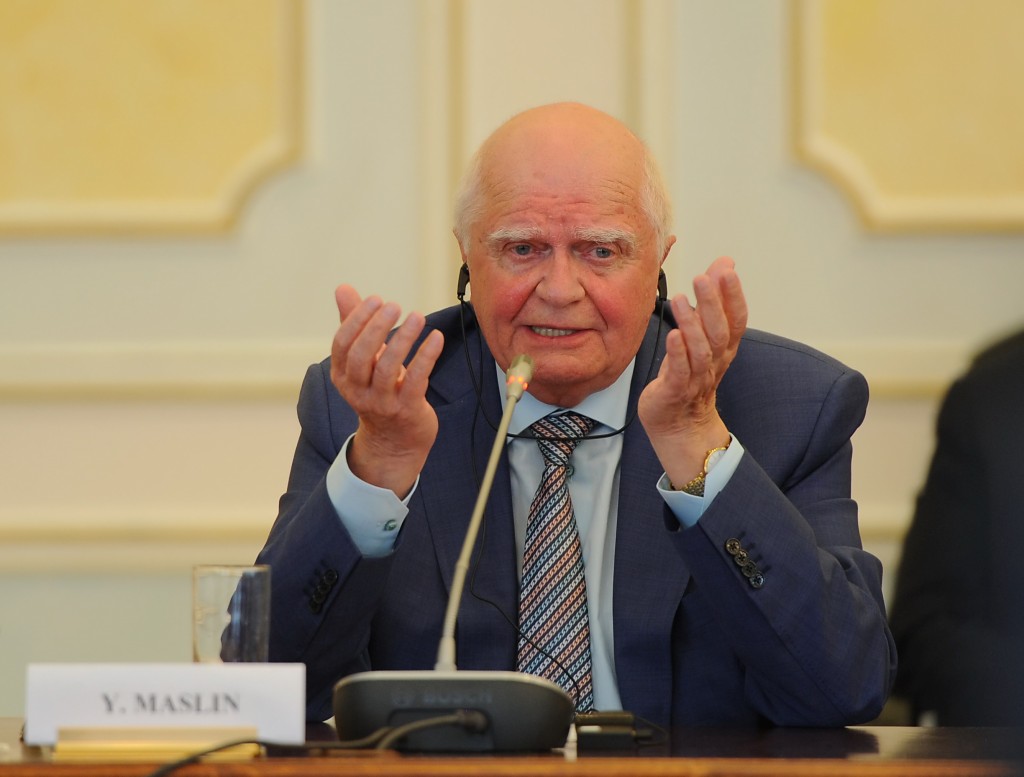
The seminar focuses on the history the Cooperative Threat Reduction (CTR) programme, better known as the Nunn-Lugar programme, named after U.S. Senators Sam Nunn and Richard Lugar who initiated the legislation to allow the U.S. to fund nuclear and other weapons of mass destruction elimination efforts in the former Soviet republics.
Titled “Reducing Global Security Threats: Lessons from Kazakhstan,” the seminar include panels on specific weapons-decommissioning projects, including decommissioning particular reactors and securing nuclear material through Project Sapphire (which saw nearly 600 kilogrammes of highly enriched uranium securely taken out of Kazakhstan in 1994), as well as on current nuclear cooperation, particularly with the International Atomic Energy Agency. The task of the seminar, explained Minister of Foreign Affairs of Kazakhstan Erlan Idrissov in his opening remarks, is to “extract from the concrete and visible example of cooperation in this sensitive area important lessons for the formation of future policies based on the principles of non-proliferation and aimed at reducing the threat of conflict with the use of weapons of mass destruction.”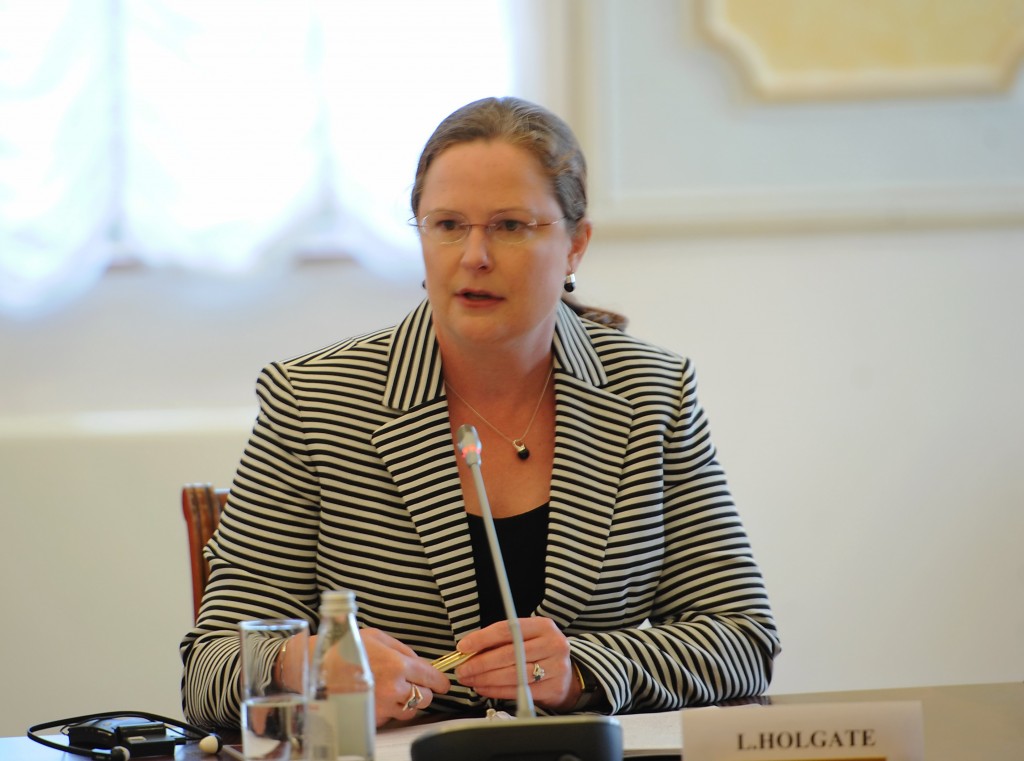
Several of the speakers at the session highlighted the decision to abandon nuclear weapons as a turning point in Kazakhstan’s history. Chairman of the Senate Kassym-Jomart Tokayev, himself a long-time foreign minister of Kazakhstan and a former Deputy Secretary General of the United Nations, said in his keynote remarks at the seminar that “Rejection of the nuclear legacy became the only correct strategic decision because it ensured the country a worthy place in the world community, created the preconditions for successful economic reforms with the assistance of more than $190 billion of investment and, ultimately, ensured its safety. He also added that the decision gave Kazakhstan “the moral and political right to demand decisive action from other countries to achieve universal nuclear disarmament.”
“This is the vision that motivated the essential judgement – that Kazakhstan’s security was better protected by rejecting nuclear weapons,” commented Holgate. “This courageous decision set the stage for the peaceful transition from the cold war to the post-cold war era and the simultaneous strengthening of the global non-proliferation regime.”
Nuclear Disarmament in 1990s as Prologue to Today’s Global Stance
According to Tokayev, among Kazakhstan’s contributions to making the world safer from nuclear weapons and nuclear weapons material are its closure of the Semipalatinsk nuclear test site, accession to the Treaty on the Non-Proliferation of Nuclear Weapons (NPT), the rejection of what was then the fourth largest nuclear arsenal in the world, the signing of the Comprehensive Nuclear Test Ban Treaty (CTBT), the creation of the Central Asian Nuclear Weapons Free Zone (CANWFZ), the UN General Assembly resolution adopted at the initiative of Kazakhstan proclaiming Aug, 29, which was the closure date of the Semipalatinsk test site, as the International Day against Nuclear Tests. Kazakhstan also convened the Conference on Interaction and Confidence Building Measures in Asia, qorked to strengthen integration processes in the Eurasian space and has promoted dialogue between civilisations and religions. “The main role in the initiation of this policy and its implementation belongs to President Nursultan Nazarbayev,” Tokayev said who went on to present Kazakhstan’s principled positions towards some of the key nuclear disarmament issues of today.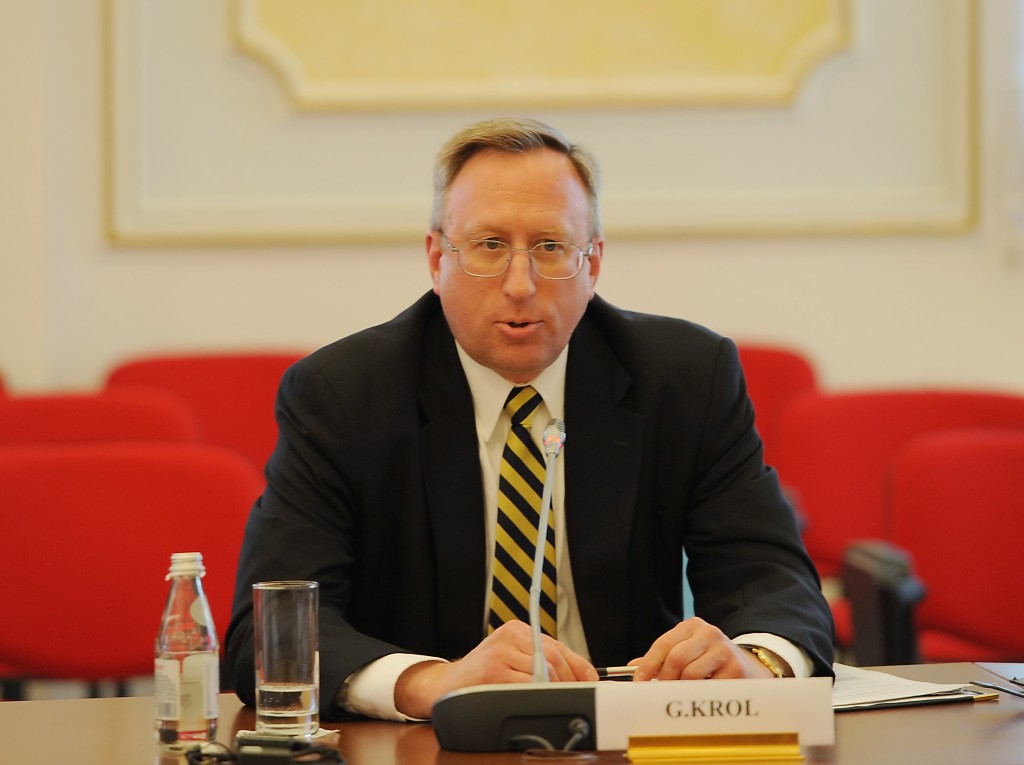
“We have consistently advocated for the universalisation of the Treaty on the Non-Proliferation of Nuclear Weapons,” Tokayev added bringing up the subject that not all countries in the world are members of the key treaty. In particular, India and Pakistan, which have nuclear weapons, and Israel, which is believed to have them, have never joined NPT as did the new nation of South Sudan. The Democratic People’s Republic of Korea (DPRK), which also acquired nuclear weapons, announced in 2003 its withdrawal from the treaty. “We consider it a cornerstone of international security. At the same time, we must admit that the treaty with the emergence of de facto nuclear weapon states is not a perfect document for the real non-proliferation regime.”
Tokayev further placed a great emphasis on the fact that “Attempts of the so-called ‘non-systemic’ players who can access nuclear technology and arsenals are considered extremely dangerous. A recent statement by the Islamic State that within a year it will become the owner of nuclear weapons should be taken seriously.”
“Kazakhstan stands for the realisation of the Comprehensive Nuclear Test Ban Treaty and the strengthening of its verification mechanism,” he said. “Kazakh diplomats are working on a project of the United Nations Universal Declaration on achieving a world free of nuclear weapons, for the institutionalisation of the treaty on the establishment of a zone free from nuclear weapons in Central Asia. Kazakhstan supports the intention of world powers to give a new impetus to the processes of non-proliferation, as clearly evidenced by the results of the Nuclear Security Summits in Washington, Seoul, and The Hague, where our President took part with enthusiasm.”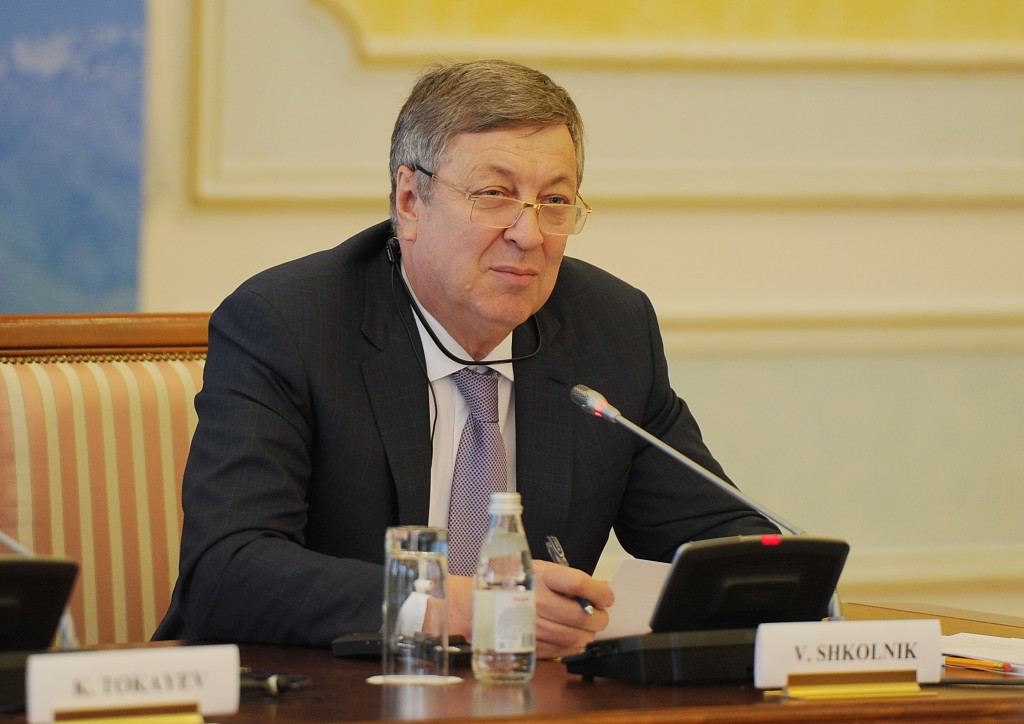
The Chairman of the Senate also pointed out that “We are convinced that building a more secure world has to be based not on the doctrine of nuclear deterrence, but on international measures of trust and cooperation. We believe that the permanent members of the UN Security Council should play a key role in the establishment of peace in the world.”
Learning from Nunn-Lugar Lessons to Build “Bridge to the Future”
The Nunn-Lugar programme was a 1991 U.S. initiative to provide funding and expertise for states from the former Soviet Union in decommissioning weapons, including nuclear, biological and chemical weapons stockpiles, from former Soviet states, including Azerbaijan, Belarus, Georgia, Kazakhstan, Ukraine and Uzbekistan. Some of the programme’s biggest projects have been undertaken in Kazakhstan, including a 17-year year operation to seal plutonium left behind in the Degelen Mountain at the former Semipalatinsk nuclear test site and collaboration on other long-term efforts to remove weapons from Kazakhstan and to secure the by-products of weapons testing securely in the country.
Kazakh Minister of Energy Vladimir Shkolnik, Holgate and other speakers also commented that while the seminar would honour past efforts and actors, the trilateral cooperation of many Nunn-Lugar efforts, as well as President Nazarbayev’s vision on nuclear issues, is still very relevant to current security issues. “Not only will this project honour those who have been involved, but it will, I am certain, provide inspiration and lessons for other challenges in other places,” Holgate said.
Idrissov also referenced the importance of the event as it has the potential to build a “bridge to the future” of such cooperation.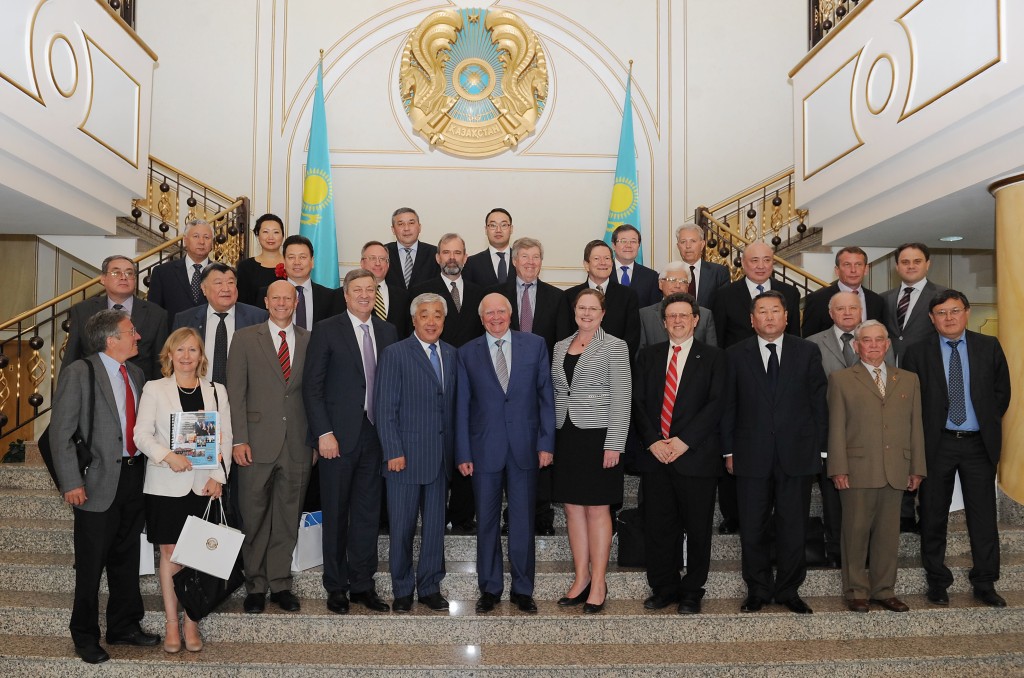
It did not go unremarked that U.S. and Russian experts were embarking upon a four-day conference together at a time when relations between the two powers are strained. “I do not agree with Kipling … that ‘East is East, and West is West, and never the twain shall meet,’” said Yevgeni Maslin, former head of the 12th department of the Russian Defence Ministry, which oversaw the nuclear arsenals. “No – all problems can be solved peacefully. We just have to try.” He went on to quote beloved Kazakh poet and philosopher, Abai, saying that “the worst person is he who does not have a goal,” and that the two sides should work together to achieve their goals.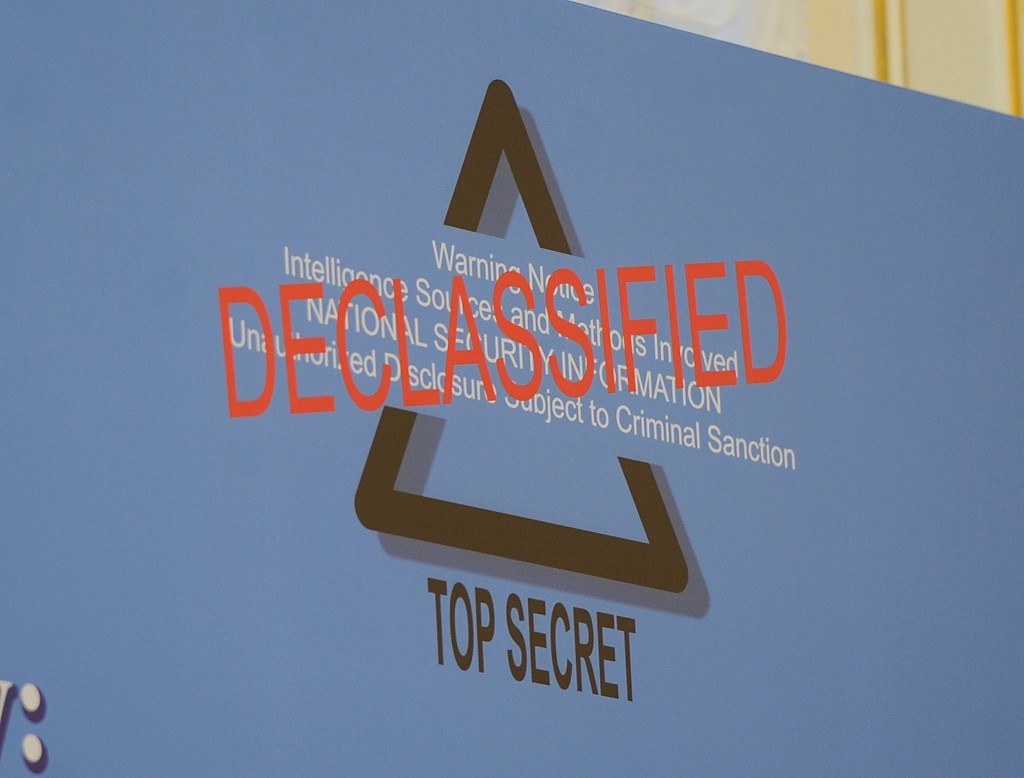
Idrissov, too, commented that perhaps meeting in this format would facilitate meetings between the U.S. and Russia in other formats. “The whole world is observing the relations between the U.S. and Russia,” he said, “and the whole world wants the superpowers to go back to a constructive way of building relationships.” He expressed his hope that the conference over the next four days and the celebration of the achievements they, and the world, reached by working together, could help warm today’s frosty relationship.
Ambassador of Russia to Kazakhstan Mikhail Bocharnikov and Ambassador of the United States to Kazakhstan George Krol also spoke at the plenary session.
